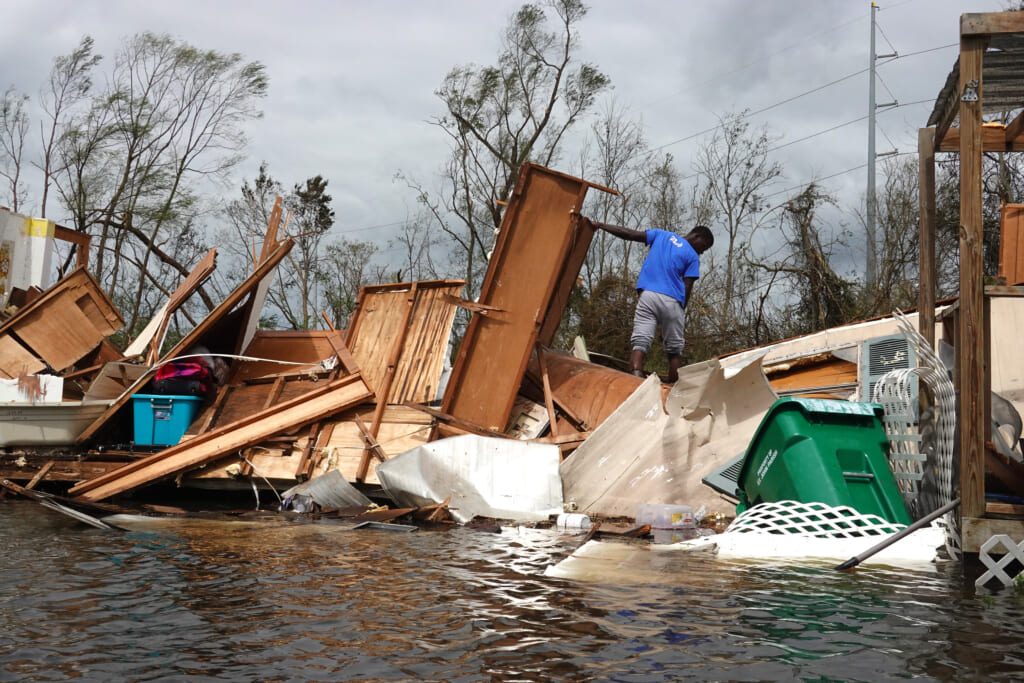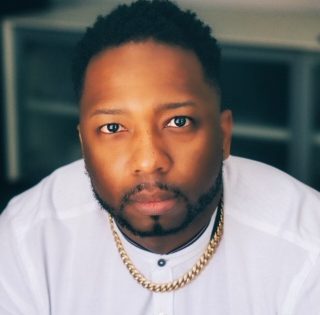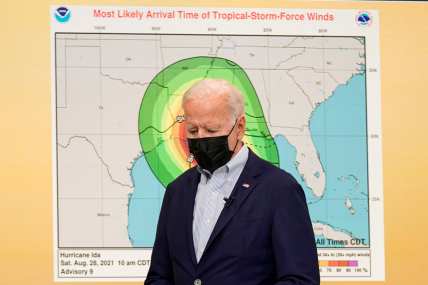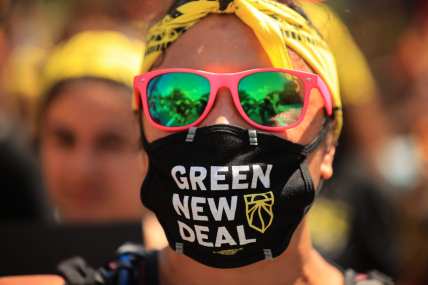Why Black communities are bearing the brunt of climate change
OPINION: Systemic failures in healthcare and a widening racial income gap hinder Black communities from building climate resilience, or the ability to prepare and respond
Planet earth will recover from our manmade damage, but will we?
Climate change is here, and we are all feeling its effects right now, but Black communities are bearing the largest brunt of its impact.
More than half of Black Americans in the United States live in the South, an area that sees stronger hurricanes and flooding from climate change than any other part of the country. The racial wealth gap, redlining, and historic segregation have resulted in African Americans living in less desirable low-lying and flood prone areas in many cities throughout the United States. Therefore when hurricanes hit, Black people are more likely to be left picking up the pieces.

In 2005, the consequences of this history were made terrifyingly clear during Hurricane Katrina. Many New Orleans residents were forced to leave their homes, many of whom never returned. Even worse, over half of those who perished were Black Americans. At the time, talk of climate change was overshadowed by topics like poor infrastructure and disaster relief — and appropriately so — but in the decade and a half since a renewed emphasis on the socio-environmental effects of climate change has resurfaced.
The Direct and Indirect Impacts of Climate Change on Black Communities
The recent destruction caused by Hurricane Ida has reminded us that policy-making aimed at curbing climate change needs to be front and center.
Climate change is being spurred by global warming, causing us to experience more frequent and severe weather events, like heavy rainfalls, dangerous storms, devastating floods and air pollution, droughts and heat waves. A warmer earth also increases the spread of infectious diseases, interferes with our food sources and strains vital infrastructure like bridges and sewage systems.
While the impact of these events are felt by all, the recovery is longer and more arduous for Black residents. Systemic failures in healthcare and a widening racial income gap hinder Black communities from building climate resilience, or the ability to prepare and respond to extreme events that occur due to climate change. Without financial resources many Black people are simply unable to access the essentials needed to prevent heat-related illnesses like air conditioning or a car to face the dangers of climate change head on. Black people are also more likely to have pre-exisiting health conditions like obesity, diabetes, and heart disease that limit one’s ability to quickly adapt to more volatile changes in weather.
Rising temperatures also means that hurricanes, and therefore evacuations, are more likely. Without a car or money for food, gas and temporary lodging, many Black people are unable to evacuate, putting themselves at risk for injury and even death. Even when Black residents save money to endure the impacts of climate change, they are often less likely to have insurance or the financial resources to rebuild or relocate when extreme weather destroys their homes.

Some believe that better individual health could lead to more climate resiliance, but environmental racism is a major roadblock to good health. Environmental racism refers to the unequal access of clean environments and basic environmental resources. Environmental racism disproportionately victimizes communities of color by putting them at higher risk of environmental hazards. Not surprisingly, Black and Brown people are more likely to live in high pollution areas, closer to hazardous waste, and die of environmental causes leading some activists to call environmental racism the new Jim Crow as it subjects communities of color to inequitable living conditions.
Why Climate-induced Heat Waves and Air Pollution Are Particularly Concerning
The Earth is getting hotter and will continue to do so as heat trapping greenhouse gas emissions continue to rise. Black people tend to cluster in urban areas so they experience a phenomenon called the “heat island” effect, where darker-colored materials like pavement used to construct roads and buildings do not allow heat to escape at the same levels as less-industrial materials, such as soil and grass. Black people also tend to live in areas with less tree cover and a lower prevalence of central air conditioning. Environmentalists say that predominantly Black counties currently experience 2-3 more extreme temperature days than white counties, but that number is expected to rise to about 20 days by mid century.
Climate change also worsens air pollution, exacerbating health inequities that already exist in Black and Brown communities. Polluted air is especially harmful for Black Americans who have pre-existing health conditions which make it hard to breathe, such as asthma or chronic obstructive pulmonary disease (COPD). Black Americans with asthma have an almost 3 times higher chance of going to the hospital or dying from an asthma attack than white Americans.
Is it Too Late To Make Change?
Leading experts say that even if we cut carbon emissions today it would take centuries for the earth to recover, but that shouldn’t discourage us from becoming more eco-friendly. Despite the tremendous risks that climate change presents, if action is taken now, there are endless opportunities to create more prosperous futures for all Americans, including Black Americans, but this is only achievable if we all commit to doing our part by:
- Conserving water
- Recycling
- Not littering
- Reducing our carbon footprint by walking and cycling
- Shopping wisely (like buying green and sustainable products or using a reusable bag)
- Using chemical free (non-CFC and HFC) beauty care products
- Voting for elected officials who believe in science and climate action
The rewards — a potential for job creation in a renewable energy sector, more secure infrastructure, less infectious disease, cleaner air, and safer food and water sources — are enourmous, undeniable, and vital to our existence.
Generational Impact
The question is not whether or not the world will recover from the harm that humans have inflicted upon it — the earth has endured far worse assault in the form of ice ages, heat waves, and cosmic collisions — but instead whether earth or some other planet will be our future home.
The only longterm solution to this crisis is to decrease our use of fossil fuels on a local and national level. The change starts with us and ends with voting for elected officials who emphasize environmental protection. Voting for a green future is a worthwhile bet on the preservation of our future generation’s livelihood. We must act now or reckon with the reality that our children won’t have the same luxury of taking planet earth for granted as we have.

Dr. Shamard Charles is an assistant professor of public health and health promotion at St. Francis College and sits on the anti-bias review board of Dot Dash/VeryWell Health. He is also host of the health podcast, Heart Over Hype. He received his medical degree from the Warren Alpert Medical School of Brown University and his Masters of Public Health from Harvard’s T.H. Chan School of Public Health. Previously, he spent three years as senior health journalist for NBC News and served as a Global Press Fellow for the United Nations Foundation. You can follow him on Instagram @askdrcharles or Twitter @DrCharles_NBC.
Have you subscribed to theGrio’s “Dear Culture” podcast? Download our newest episodes now!
TheGrio is now on Apple TV, Amazon Fire and Roku. Download theGrio.com today!


